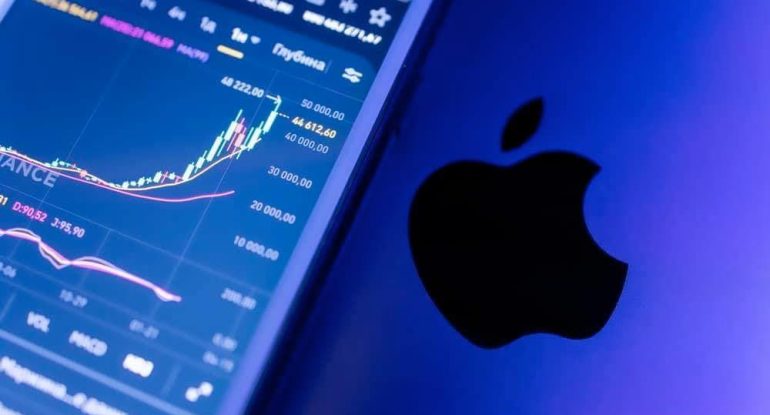Apple Stock Triple Monster Signal

Amidst market turbulence caused by tariff concerns, there’s been a notable surge in insider trading activity at Apple (NASDAQ: AAPL).
Trades by Apple’s top executives amounted to roughly $40 million. These transactions, all detailed in SEC filings, were executed under pre-planned Rule 10b5-1 arrangements—a common practice intended to preempt accusations of improper insider trading.
Leading the pack was Apple’s CEO Tim Cook, who divested approximately $24.18 million in shares on April 2, 2025, at prices ranging from $221.77 to $224.76 per share. Just the day before, Cook had received 218,568 shares from the vesting of restricted stock units (RSUs). After these transactions, Cook’s direct holdings in Apple stand at 3,280,295 shares.
COO Jeff Williams also made moves, selling 35,493 shares on April 2nd for about $7.95 million at prices between $223.48 and $225.03. Earlier, on April 1st, Williams sold another 39,042 shares at $223.19 each to cover tax obligations arising from RSU vesting, which brought in roughly $8.71 million.
Completing the picture, General Counsel and Secretary Katherine Adams also engaged in similar transactions. On April 1st, Adams acquired 74,535 shares through RSU vesting and then sold 35,713 shares, valued at approximately $7.97 million, to address tax obligations. On April 2nd, she sold a further 38,822 shares in open market trades, realizing about $8.68 million at prices between $221.68 and $224.62.
Apple stock struggles
Interestingly, these executive sales occurred just hours before Apple stock was hit with a significant sell-off, mirroring a wider downturn in the market.
By the close of trading, AAPL’s value stood at $188.38, representing a plummet of over 7% for the day. Looking at the week, the stock experienced a steep 13% fall.

Apple stands out as one of the companies significantly impacted by the tariffs. The tech giant witnessed over $315 billion wiped off its market capitalization in a single day – a truly historic single-day loss.
Reinforcing this sentiment, analysts like Dan Ives of Wedbush Securities, who describes the tariffs as an “economic Armageddon,” cautioned that they could increase the price of Apple products, hinder the burgeoning AI sector, and disrupt the globally efficient tech supply chain.
Despite these challenges, hope remains for Apple, with a 30% likelihood that the company could secure a tariff exemption, mirroring their success in 2018.
Wall Street’s take on AAPL stock
On the flip side, parts of Wall Street maintain an optimistic outlook on Apple’s stock. For example, on April 3rd, Raymond James reaffirmed an ‘Outperform’ rating for the tech titan, sticking to a $250 price target. However, they did caution that the proposed tariffs on Apple hardware could potentially slash earnings per share by as much as 25% in the coming year.
Simultaneously, Jefferies held firm to its ‘Underperform’ rating, setting a price target of $202 and projecting a possible 14% drop in net profit for fiscal year 2025, citing tariff-related risks.
In contrast, Tigress Financial Partners adopted a bullish stance, raising their price target to $300. Highlighting Apple’s expanding services division, consistent innovation, and strong capital returns, they pointed to these as crucial long-term catalysts for growth.
Overall, the consensus from 33 Wall Street analysts, as compiled by TipRanks, anticipates AAPL trading at an average price of $248.75, suggesting a potential upside of around 32% over the next year.
Featured image via Shutterstock











